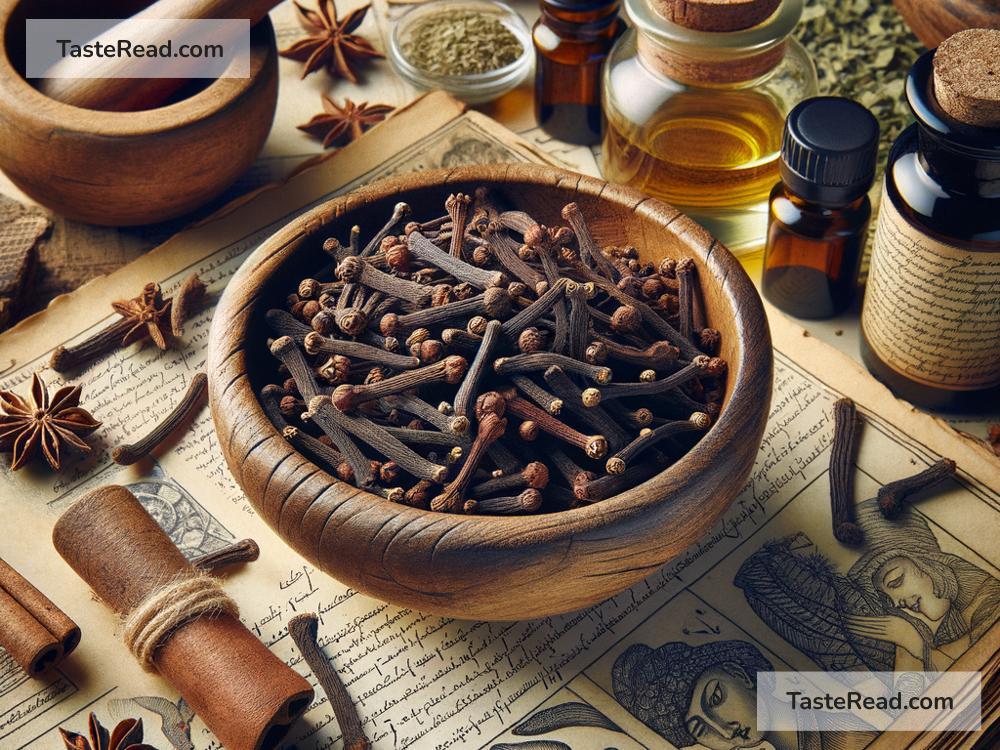The Ancient Significance of Cloves in Medicinal Practices
Cloves are small but powerful spices that have been used for centuries in cooking, medicine, and rituals. These dried flower buds come from the clove tree, scientifically known as Syzygium aromaticum. Their strong aroma and warm, spicy flavor make them a popular ingredient in recipes around the world. But did you know that cloves have been celebrated for their medicinal benefits since ancient times? Here, we’ll explore how cloves were used in traditional medicine and why they became a staple in healing practices.
Origins of Cloves
Cloves originated in the Maluku Islands of Indonesia, also known as the “Spice Islands.” From there, they spread to other parts of Asia, the Middle East, Africa, and Europe through trade routes. In ancient times, they were highly valued as one of the most precious spices, often worth their weight in gold. Cloves were not just seen as culinary treasures but also as powerful tools for health and wellness.
Cloves in Ancient Medicine
For thousands of years, cloves have been part of various traditional medicine systems in different cultures. Their powerful health benefits were recognized in ancient Chinese medicine, Indian Ayurveda, and Arabic medicine long before modern science discovered their active compounds.
1. Cloves in Chinese Medicine
In ancient China, cloves were used to treat a wide variety of ailments. Physicians used the spice to relieve digestive discomfort, such as bloating, nausea, and upset stomach. Cloves were also considered helpful for dental care. The spice’s ability to numb pain made it a popular remedy for toothaches and gum infections.
In addition, cloves were thought to have warming properties. They were used to boost circulation and energy in the body, particularly in cold weather or for people with sluggish metabolisms. Cloves were often prescribed as part of herbal formulas to improve overall vitality.
2. Cloves in Ayurveda
Ayurveda, the ancient system of medicine from India, has long been aware of cloves’ healing power. Cloves are considered to have antibacterial and anti-inflammatory properties, making them useful in treating infections and reducing pain. They are classified as “hot” spices, which means they help balance certain energies in the body, according to Ayurvedic principles.
In Ayurveda, cloves were commonly used to strengthen digestion, improve appetite, and reduce gas. They were also included in remedies for respiratory problems like cough and asthma. The spice’s aromatic nature was believed to support the lungs and clear mucus.
Cloves were often combined with other herbs to amplify their effects. For example, clove-infused teas might be paired with ginger or cinnamon to create warming drinks that fight colds or enhance energy.
3. Cloves in Arabic Medicine
Cloves were highly valued in the Arab world, both as a spice and a medicine. Ancient Arab doctors used cloves to treat infections, alleviate headaches, and improve digestion. They believed cloves had purifying properties that could cleanse the body and eliminate toxins.
In addition to physical health, cloves were also used in aromatherapy to uplift the mood. When burned as incense or added to oils, cloves were thought to reduce stress and anxiety, creating a sense of calm and focus.
Key Medicinal Properties of Cloves
What makes cloves so special in medicine? Their health benefits come from their active compounds, particularly eugenol. Eugenol is an antioxidant that has antibacterial, antiviral, and anti-inflammatory properties. It’s the compound that gives cloves their signature scent and healing power.
1. Pain Relief
Clove oil is an ancient remedy for toothaches. Applying clove oil directly to gums or a decayed tooth provides instant relief by numbing the area. This practice has survived to modern times and is still considered effective.
2. Fighting Infections
Cloves’ antimicrobial properties help fight bacteria, viruses, and fungi. In traditional medicine, cloves were often used to treat wounds, prevent infections, and heal skin problems.
3. Improving Digestion
Cloves are fantastic for soothing stomach issues. They promote the production of enzymes that aid digestion, making them a great choice for treating bloating and indigestion. Ancient healers combined cloves with other spices to create blends that supported gut health.
4. Boosting Immunity
Cloves contain antioxidants, which protect the body from damage caused by free radicals. Free radicals are unstable molecules that can harm cells and lead to chronic diseases. Ancient practitioners recognized cloves’ ability to strengthen the immune system and prevent illness.
Cloves in Rituals and Symbolism
Beyond medicine, cloves held cultural and symbolic importance in many ancient societies. They were often used in spiritual rituals, partly because of their purifying properties. In the Arab world, cloves were burned to ward off evil spirits. In India, cloves were offered in religious ceremonies to honor deities.
Cloves also symbolized prosperity and luxury. Because they were so precious, possessing cloves indicated wealth and status. Over time, their medicinal and cultural significance contributed to their continued use in everyday life.
Cloves Today
While much of ancient wisdom about cloves has been confirmed by modern science, this spice remains just as relevant today. People around the world still use cloves in teas, herbal remedies, and essential oils to improve overall health. Their long-established role in traditional medicine reminds us of the enduring power of natural ingredients.
From ancient China to the Spice Islands of Indonesia, cloves have traveled across centuries and continents, bringing flavor and healing wherever they go. Their significance in medicinal practices is a testament to humanity’s ability to uncover the gifts of nature and harness them for wellness. Next time you sprinkle cloves into a dish or sip a clove-infused tea, remember that you’re continuing a tradition that spans thousands of years.


